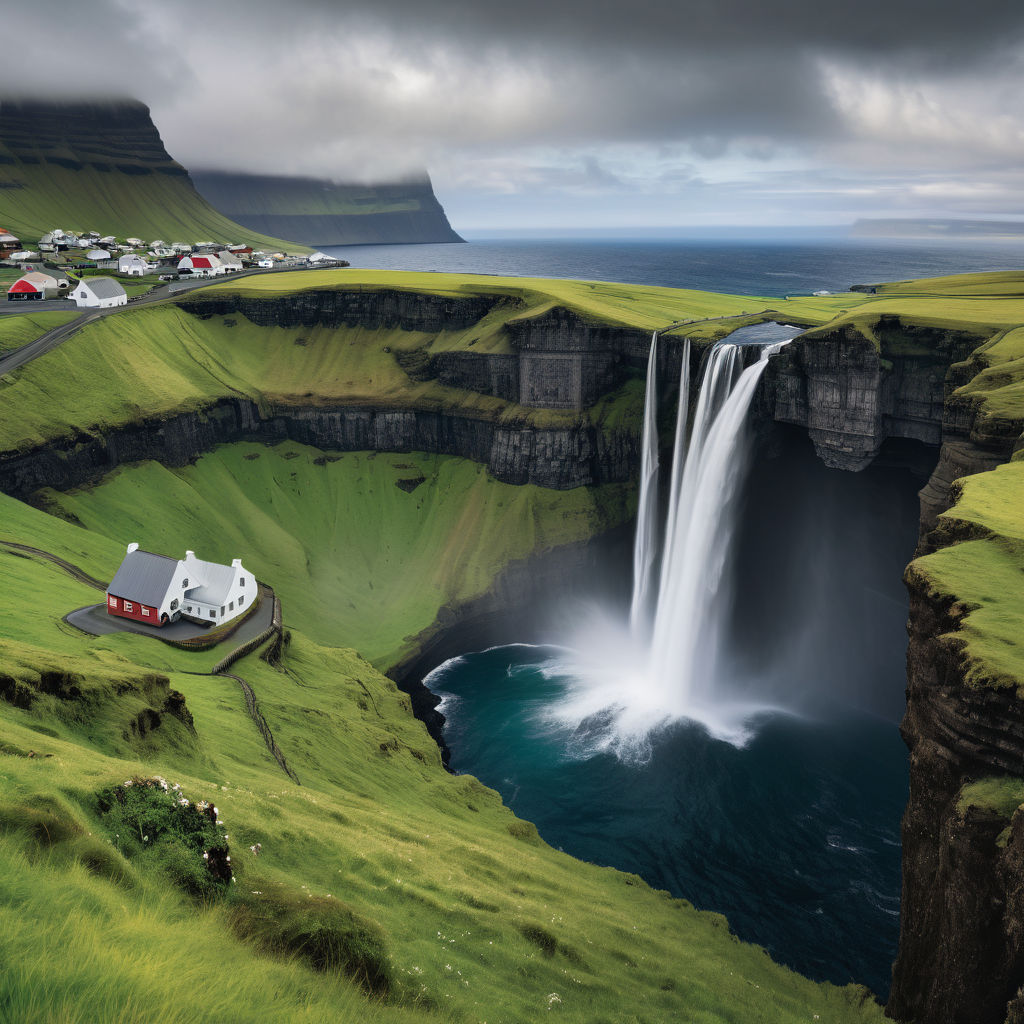Introduction to the Faroe Islands: Nordic Beauty and Culture
Exploring the Natural Landscapes and Rich Heritage of the Faroe Islands

Introduction to the Faroe Islands
The Faroe Islands, an archipelago situated in the North Atlantic Ocean, are part of the Kingdom of Denmark but enjoy a high degree of autonomy. Located between Iceland and Norway, the islands are renowned for their stunning natural landscapes, including rugged cliffs, sweeping fjords, and verdant valleys. The capital, Tórshavn, is one of the oldest capitals in Northern Europe and serves as the cultural and economic hub of the islands. Other notable towns include Klaksvík and Runavík. The Faroese culture is deeply rooted in Nordic traditions, with a rich heritage of music, dance, and storytelling that reflects the islands' history and maritime environment.
Cross-national and Cross-cultural Understanding
The Faroese people are generally open and welcoming towards other cultures, reflecting the islands' history of maritime trade and international connections. Cross-national and cross-cultural understanding is fostered through various educational programs, cultural exchanges, and international partnerships. For instance, the University of the Faroe Islands collaborates with institutions across Europe and the world, promoting academic exchange and cultural understanding. Cultural exchanges are also evident in the numerous festivals celebrated in the Faroe Islands, such as the Ólavsøka festival, which attracts visitors from around the globe. These events provide a platform for the Faroese to showcase their cultural heritage while engaging with international visitors. Additionally, the Faroese government supports various initiatives aimed at enhancing cross-cultural dialogue, including arts programs and language courses that encourage mutual understanding.
Interactions and Social Dynamics
Interactions between Faroese people and foreigners are generally marked by friendliness and hospitality. Social behaviors in the Faroe Islands emphasize community, respect, and cooperation. The Faroese are known for their welcoming nature and willingness to share their culture with visitors. This openness is particularly evident in smaller communities where hospitality is a key social norm. Communication styles in the Faroe Islands are typically straightforward and direct, reflecting the islands' Nordic heritage. Faroese, the official language, is widely spoken, but many Faroese people are also fluent in Danish and English. This multilingualism greatly facilitates interactions with foreigners and enhances cross-cultural communication. Understanding local customs, such as the importance of personal space and the reserved nature of greetings, helps foreigners integrate more smoothly into Faroese society.
Views on Dating and Relationships
Dating and relationships in the Faroe Islands are influenced by both traditional values and modern perspectives. While traditional customs still hold sway in some areas, especially in terms of family involvement and community approval, contemporary Faroese society is generally open to dating and relationships with foreigners. Cultural expectations around dating include mutual respect and the gradual building of trust. The small population of the Faroe Islands means that personal connections are often close-knit, and relationships are typically taken seriously. Foreigners entering into relationships with Faroese individuals may need to navigate these close community ties, but they are usually welcomed warmly once they demonstrate genuine interest and respect for the local culture.
Marriage and Family
Marriage is highly valued in Faroese society, and marrying foreigners is increasingly common. These marriages are generally accepted, though they involve certain legal and social considerations. The legal process for marriage in the Faroe Islands requires adherence to local laws, including residency requirements and proper documentation. Cross-cultural marriages bring together different traditions and practices, enriching the social fabric of Faroese society. Family plays a crucial role in these marriages, providing support and ensuring that cultural traditions are respected. Common practices in Faroese weddings include traditional ceremonies that reflect the islands' Nordic heritage, such as the use of folk music and dances, and the sharing of traditional Faroese cuisine.